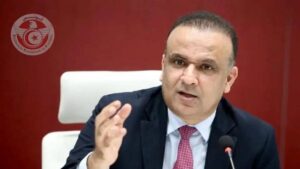Niger: Digitalisation of the tax system, a step towards optimising revenue

In a bid to boost resource mobilization and enhance tax transparency, the Nigerien government has embarked on an ambitious digital transformation of its tax system.
Spearheaded by the Directorate General of Taxes (DGI), this modernization effort aims to streamline tax collection and make the process more accessible for citizens across the country.
Central to this initiative is the interconnection of DGI’s operational centers nationwide, a move that promises improved efficiency in tax administration.
To support this digital leap, the DGI is exploring a strategic partnership with the state-owned telecom provider, Niger Telecoms, focusing on expanding internet access to tax centers, particularly in remote areas where connectivity remains a significant barrier.
A joint technical committee has been established to examine the feasibility of this network upgrade, with pilot solutions set to be implemented in the regions of Dosso and Tahoua, which are among the first to benefit from this enhanced connectivity.
Through collaboration with Niger Telecoms, the DGI hopes to overcome connectivity challenges that have previously hindered digital progress.
This partnership will facilitate the deployment of digital tools such as the e-SISIC platform, which enables online tax declarations and payments, and the Certified Electronic Billing System (SECeF), designed to improve transaction tracking and reduce tax evasion.
This digital transformation project seeks to ease administrative burdens on taxpayers while optimizing revenue collection.
The reforms are part of a broader financial governance strategy aimed at modernizing public administration in Niger and reflect the government’s commitment to leveraging technology to drive efficiency.
The initiative aligns with a favorable economic outlook, as Niger’s GDP growth is forecasted to reach 5.7% in 2024, up from 2% in 2023, according to the World Bank.
This economic recovery is expected to create a conducive environment for increased tax revenue and more robust internal resource mobilization, empowering the government to fund essential development projects.
With these reforms, Niger is on track to build a more modern and responsive public administration, meeting the expectations of an increasingly connected population and setting the stage for sustainable growth in the public sector.
Fayçal BADIE






